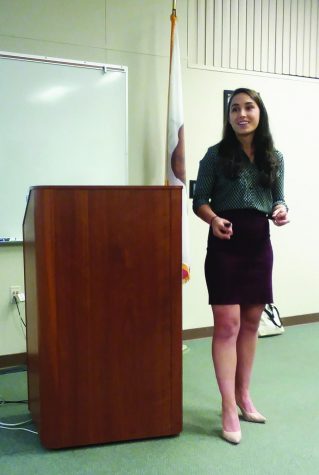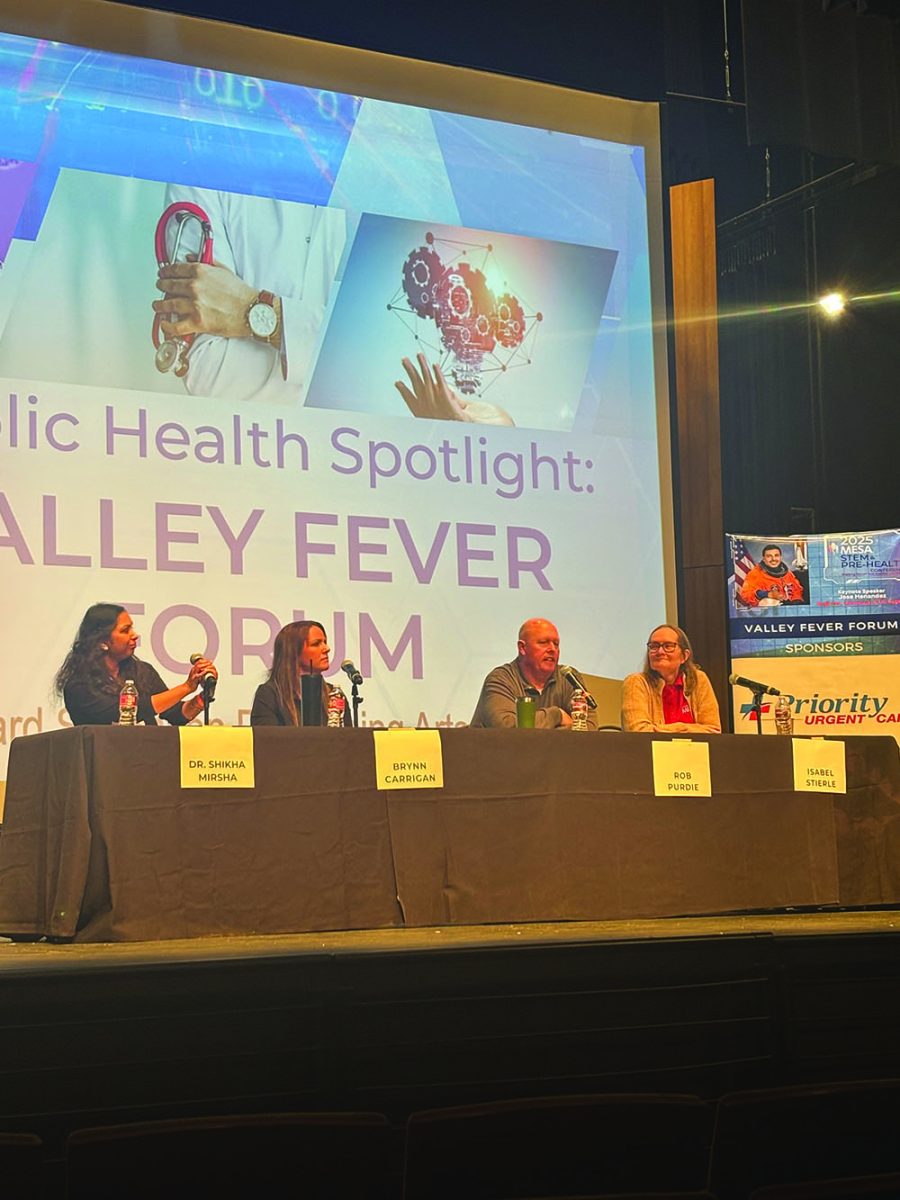Bring Back our girls is discussed at the Levan Center at the BC campus
March 15, 2019
Yale Ph.D candidate and journalist Hilary Matfess spoke at the “#BringBackOurGirls: Women and Conflict in North East Nigeria” event in the Levan Center at Bakersfield College about women in the Boko Haram insurgency and their role in war on March 6.
BC students and staff attended the event to listen to Matfess talk about her journalistic work focusing on Boko Haram.
Matfess talked about lack of women prursuing an education.
“We often overlook the experiences of women, so I would urge you to gender everything in your life either as a game or a serious academic pursuit because there’s often a lot there,” she said.
Matfess then started off by elaborating on Boko Haram which she researched and studied during trips to North East Nigeria. She also lived there for about six months.
Boko Haram is a terrorist organization that began in North East Nigeria and it is currently active in parts of Africa.
“Boko Haram evolved from a relatively non-violent religious self-help community to one of the world’s deadliest groups,” Matfess said.
According to Matfess, the founder of Boko Haram was a preacher associated with a mosque in a location of Nigeria before he had a disagreement with the mentor at said mosque, which motivated him to start a religious pact so members could work as motorcycle taxi drivers.
276 girls were abducted by Boko Haram from their school in Chibok, Borno State in April 2014.
Nigeria activists started #BringBackOurGirls and it became viral.
“Every woman in this room had a phase in prepubescence or adolescence in which the notion of being considered a girl or a child bristled them and it sticks with me to this day,” Matfess said. “But that’s something that’s characterized the entire field of political science and the study of war is this notion that women are really on the sidelines.”
Matfess then presented a slide that informed why women join Boko Haram and what they do in Boko Haram.
Women join because they would have access to education, social status and material benefits, and brideprice payments.
In Boko Haram they are wives, servants, slaves, and suicide bombers.
Matfess shared what she learned during her time in Nigeria to interview people about their experiences.
“A woman spoke to me about how she couldn’t bear the thought of leaving her mother behind when Boko Haram came to town and so she put her mother in a wheel barrow and fled from a terrorist insurgency….it’s awe-inspiring and heartbreaking,” she said. The speech was part of Women’s History Month at BC.
The BC campus will be having more events relating to Women’s History on this month of March.

Journalist Hilary Matfess speaks about the terrorist organization Boko Haram in the Levan Center on March 6.





